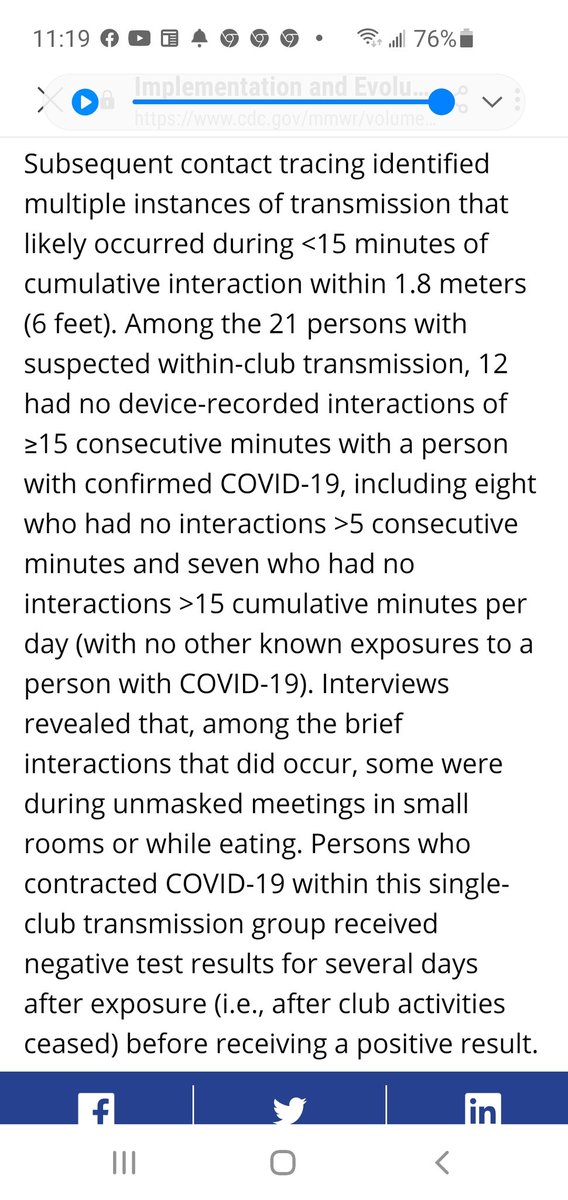
"In the United States, most coronavirus infections are never confirmed by testing, and most positive tests are never traced to a probable source."
https://twitter.com/jfeldman_epi/status/1351549046754848771
I've led CT efforts for years. What's different this time is as @jfeldman_epi
says, often times potential sources of infection are just too many to come to a conclusion.
"..countries that have invested more resources into disease surveillance cannot keep up when infection...
says, often times potential sources of infection are just too many to come to a conclusion.
"..countries that have invested more resources into disease surveillance cannot keep up when infection...
is widespread, as there are too many potential sources of infection."
But do we really want to know where disease spreads?
"Perhaps most importantly, properly investigating the question of where the coronavirus spreads also requires those in power to want to know the answer."
But do we really want to know where disease spreads?
"Perhaps most importantly, properly investigating the question of where the coronavirus spreads also requires those in power to want to know the answer."
If we really wanted to know, then would we be obligated to do something about it? is it easier, as @jfeldman_epi points out, to just blame individuals for a global pandemic?
“Many of our clusters have been the result of informal gatherings.” has been the talking points of many
“Many of our clusters have been the result of informal gatherings.” has been the talking points of many
“Work, in many cases, is not where spread develops because people at work are relying on and abiding by the rules and the guidance.”
hmmm, ever question the convenience of this line of thought. Or why some states make it illegal to sue employers for spread at work?
hmmm, ever question the convenience of this line of thought. Or why some states make it illegal to sue employers for spread at work?
Maybe it's time to uplift the voices of scientists willing to call for public policies to address public health emergencies.
"American scientists have ignored the issue of economic interventions altogether & have instead echoed the messages of state and local leaders...
"American scientists have ignored the issue of economic interventions altogether & have instead echoed the messages of state and local leaders...
urging individuals to change their behavior by wearing masks, avoiding social gatherings, & receiving the vaccine when available. Rather than trying to shape the contours of the pandemic response, scientists largely content themselves with the well-worn fantasy...
that they operate within a narrow and predetermined range of political possibility."
I know for sure that everytime I talk or tweet about a paid nearly complete shutdown, people try to shut me down.
I know for sure that everytime I talk or tweet about a paid nearly complete shutdown, people try to shut me down.
https://twitter.com/Theresa_Chapple/status/1354546070676779008?s=19
"In the end, however, the reason ... have allowed the coronavirus to spread nearly unabated comes down to the question of who is harmed and who has power. "
This will always be the reason we don't stop preventable harm in the US.
Thanks @jfeldman_epi for such a thoughtful peice
This will always be the reason we don't stop preventable harm in the US.
Thanks @jfeldman_epi for such a thoughtful peice
• • •
Missing some Tweet in this thread? You can try to
force a refresh






